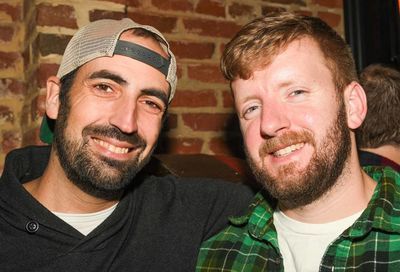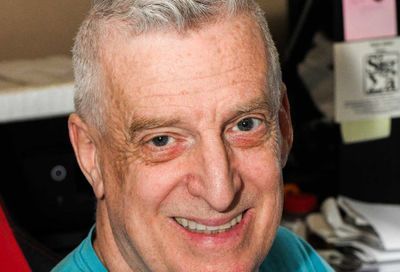Iran has no gays?! What was that crazy Iranian President trying to say? [video]
”I didn’t say [homosexuals] don’t exist. I said, not the way they are here. In Iran it is considered a very unlikeable and abhorrent act. People simply don’t like it. Our religious priests tell us it’s against our values, and all divine laws actually believe in the same. Who has given them permission to engage in homosexual acts? It is considered as an abhorrent act. It shakens the foundations of a society — the family foundation. It robs humanity. It brings about diseases.”
”It should be of no pride to the American society to say that they defend homosexuals or support it. It’s not a good act in and by itself to hold others accountable for banning it. And it’s not called freedom either.
”Sure, if somebody engages in an act in their own house, without being known to others. We don’t pay any attention to that. People are free to do what they like in their private realms. But nobody can engage in what breaks the law in public.”
”Why is it that in the West, all moral boundaries have been shaken. Just because some people want to get votes, they are ready to overlook every morality? This goes against the values of the society. It is the Divine rule of the Prophets. And then, of course, in Iran, it’s not an issue as big as it is of concern here in the United States. There might be a few people who are known. In general, our country would not accept it. And there’s a law about it, too, which one must follow.”
[Confronted by the Democracy Now reporter with a picture of two gay Iranian teens, Mahmoud Asgari and Ayaz Marhoni, who were hung to death on July 19, 2005, and asked if he thought gay men and lesbians should die.]
”There’s no law for their execution in Iran. Either they were drug traffickers or they had killed someone else. Those who kill someone else, or engage in acts of rape could be punished by acts of execution. Otherwise, homosexuals are not known to be hung in the second place. So, we don’t have execution of homosexuals. Of course, we consider it an abhorring act. But it is not punished by capital punishment. It’s basically an immoral act. There’s a lot of acts that are immoral, but there’s no capital punishment for them.”
”I don’t know where you obtain these pictures from. Either they were a network of drug traffickers or people who might have generally killed someone else. You know that we take our social security as something important…. The rights of the society sit above the rights of the individual.”
Mahmoud Amadinejad, the controversial President of Iran, responding through a translator to questions this week about his statement one year ago that gays did not exist in Iran. He appeared to deny the existence of gays then; and now is denying that gays are executed, even when confronted with evidence. The two teens in the photo he was being shown were widely reported in western media to have been killed for being gay while falsely being accused on trumped-up charges of raping a child. (Democracy Now)
”One of his aids said to me immediately after that speech was, ‘They misunderstood. They completely misunderstood. He was referring to the fact that, when he said “phenomenon” — “We don’t have that phenomenon in Iran,” that’s what he really meant. He meant, there’s no gay rights in Iran. There’s no gay rights movement. There’s no gay activism in Iran. There is no public gay rights in Iran….’ The ‘problem’ is a public gay presence, in the political and social scene…. The government doesn’t have to not allow it: It just isn’t gonna happen. If somebody walks down the street holding up a gay rights banner, the government doesn’t have to beat him up. People will. I mean, that’s unfortunate, but it’s true; as it was true in America in the 1950s…. Everybody knows there’s gays in Iran. There is quite an active gay culture in Iran — subculture, and underground — but publicly, no, the culture doesn’t accept that.”
Hooman Majd, an American-Iranian author, journalist and translator who enjoys ties to the current Iranian regime, explaining what he thinks President Mahmoud Ahmadinejad was trying to say at Columbia University a year ago. (Fresh Air with Terry Gross on NPR)
”In Iran, we don’t have homosexuals like in your country. [audience laughter] We don’t have that in our country. [audience boos] In Iran, we do not have this phenomenon. I don’t know who’s told you we have it. [laughter and boos]”
Iranian President Mahmoud Ahmadinejad replying through an English translator to a question about human rights violation at Columbia University on September 24, 2007. The original question was, ”Iranian women are now denied basic human rights and your government has imposed draconian punishments including execution on Iranian citizens who are homosexuals. Why are you doing those things?”
Support Metro Weekly’s Journalism
These are challenging times for news organizations. And yet it’s crucial we stay active and provide vital resources and information to both our local readers and the world. So won’t you please take a moment and consider supporting Metro Weekly with a membership? For as little as $5 a month, you can help ensure Metro Weekly magazine and MetroWeekly.com remain free, viable resources as we provide the best, most diverse, culturally-resonant LGBTQ coverage in both the D.C. region and around the world. Memberships come with exclusive perks and discounts, your own personal digital delivery of each week’s magazine (and an archive), access to our Member's Lounge when it launches this fall, and exclusive members-only items like Metro Weekly Membership Mugs and Tote Bags! Check out all our membership levels here and please join us today!
























